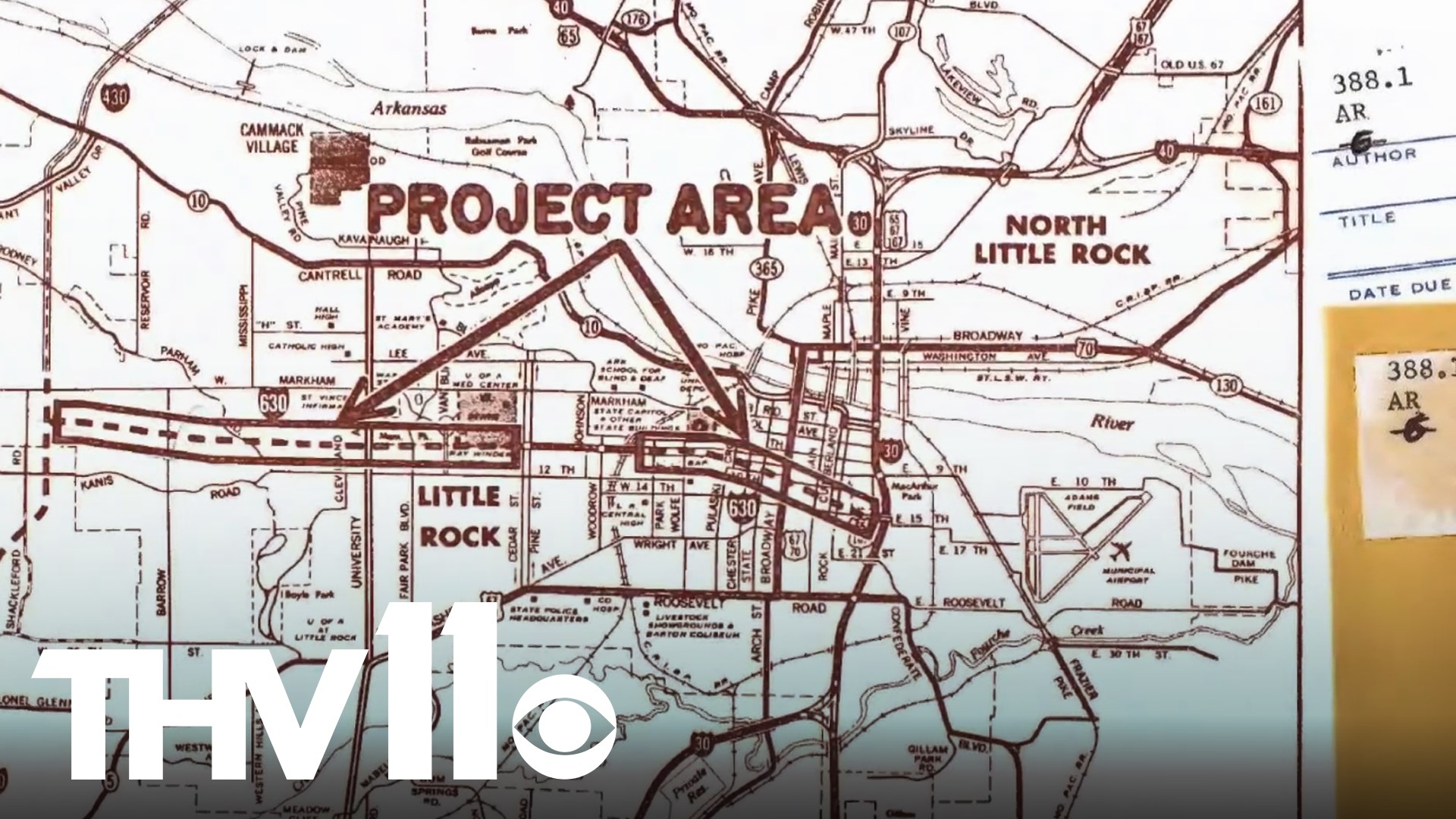LITTLE ROCK, Ark. — If you live in Little Rock, then you have probably used I-630 during your commute to work or on your way to visit friends.
While there are certainly benefits to using this popular interstate, like saving time during your commute— scholars and historians have said that some Black History here in Little Rock was lost as a result.
Local historian with Mosaic Templars, Brian Rodgers, explained that the development of I-630 spanned over decades.
"They started talking about plans for the interstate in the 1940s, in the early 1950's you see concrete plans," he added.
Rodgers mentioned how one of the reasons behind the development of the interstate system nationwide, was comfort and ease with your commute.
"People could live in the suburbs of Little Rock, and still work downtown, with an ease to and from work with the interstate system," he said.
Though it came at a cost, especially to the African American community.
Many African American families were forced to move out of their homes, and businesses were demolished.
"During that time, during the early '50s and '60s, there was no political representation for the Black community, and so I don't think there was any political power at all," Rodgers explained.
At the time, President Dwight D. Eisenhower called the development of the interstate highway system "essential to the national interest."
The passing of the Federal Highway Act was the largest public works program in American history at the time, but historians have said that African Americans largely paid the cost.
"Ninth, Tenth, and Eleventh street in the Black community was pretty much wiped out," Rodgers said. "At one point there were over 100 businesses along 9th street."
Today, a lot of those black businesses no longer exist.
As for African Americans who didn't want to give up their businesses or homes, historians have said there really wasn't any option for Black people at the time.
Rodger's great-grandparents were directly impacted.
"My great-grandparents lived on the eastern end of what is now 630, and they were forced to move. They were not given enough money to buy a new home, and so they ended up renting a house in North Little Rock," he described.
Not only did the Federal Highway Act have huge impacts here in Arkansas but also across the entire country.
Estimates from the U.S. Department of Transportation revealed that the interstate program displaced almost half a million households and more than a million people.
Some scholars who've researched the topic, like NYU Law's Deborah Archer, claim that most of those displaced were black and poor.
"Some of them were never able to buy new homes and they ended up renting for the rest of their lives," he said.
Some scholars conclude that these impacts have spanned generations and can still be felt in the African American community.
"Certainly, I think it reduced the wealth of the African American community in Little Rock," Rodgers explained.
Fast forward to today, and community groups and politicians in major cities.
Dallas, Nashville, and Minneapolis have been pushing to rethink and redesign interstates that will hopefully bring communities back together.
Some of those ideas include covering current interstates with green space and parks.
"I don't know what the future holds for Little Rock in terms of I-30, I-630, just the interstate system as a whole, but I think there are some things to think about and some progress that could be made, Rodgers explained.

